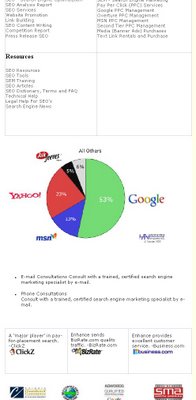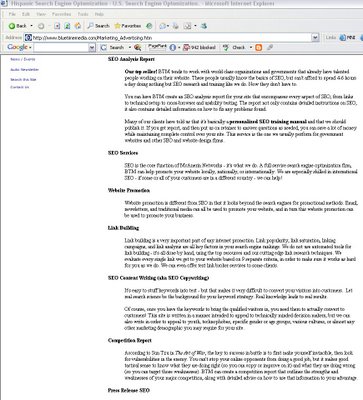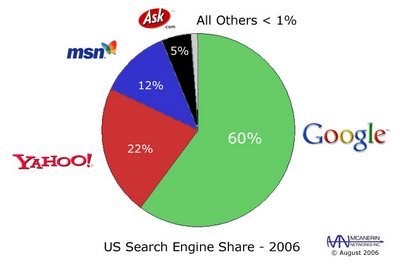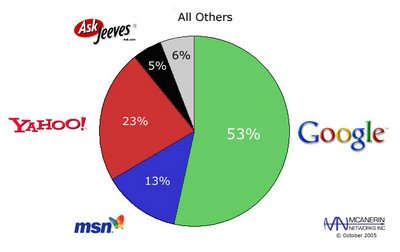So, to get to the point of my talking about SES Latino, I'll talk about Miami first (it's only fair after the previous post).
Miami, as I think of it, is actually the Greater Miami Area (or South Florida metropolitan area if you are political), which is basically several cities/areas all in one fairly easy to drive, contiguous area. The 3 main areas I was in were Miami, South Beach (SoBe) and Bal Harbour (where one of my clients, Gray & Sons, is).
The conference was at the Miami Intercontinental, which was right on the beach, and had a cool lobby. It is also walking distance to the famous Bayside Market, where the shopping is very nice (if you like that sort of thing - and I admit I do...)
I arrived early, so I had some sightseeing time. I wanted to do a tour of the everglades, but that's pretty much a day trip, and I wanted to be fair and give Miami another chance. So I went to SoBe.
Now, I try to pride myself on being an experienced enough traveller that I always check the weather first, but I screwed myself up this trip. I duly checked the weather and noticed that it was going to be overcast with thunderstorms pretty much everyday during the conference, so i packed appropriately without doing the mental calculation of Fahrenheit to Celsius like I normally do. BIG MISTAKE.
See, in Canada, "overcast and thunderstorms" usually means cold, or at least, coolish. In Miami, it means "your sweat doesn't evaporate, the rain is hot, and you need to shower after about 20 minutes outside if you are wearing any clothing of significance."
I took a cab to Ocean Drive (the road that runs along South Beach) and stopped by the News Cafe for lunch and some people watching. People watching is a major sport in SoBe, due to the (lack of) clothing worn, the celebrities that hang out there, and the party/club atmosphere.
The meal was good, but I realized that I was way overdressed for the area and time. Not to mention I was soaked in sweat. Fortunately, there is shopping nearby on Washington Ave, and I was able to buy a pair of shorts, a lighter shirt, and thong sandals. After that, I was ready to actually see the darn beach.
The beach is really nice, with white sand and lots of people. It's an odd mixture of beach volleyball and joggers, thong bikini wearing sunbathers, and families with kids. It all blends in a natural manner.
Frankly, it was so hot that I didn't even notice that the picture I took of the crowd on the beach included several topless sunbathers until I was uploading it later. Honest. I know you don't believe me after the belly dancers in China and CanCan Dancers in the Yukon, but it's absolutely true. Really.
Anyway, after that I figured I'd go take a couple of pictures of alligators, which was a challenge since I didn't have time to do the everglades tour. So I went to the nearby (to the hotel) Parrot Jungle Island. Yup, they had them, including "Crocosaurus", a HUGE saltwater croc (born in Thailand, not natural to Florida) that is the largest in the world.
After this, I met up with my friends Christine Churchill and Mike Grehan, who introduced me to Frank Watson (aka AussieWebmaster), Jeffrey Eisenberg of Future Now (an excellent source of information on post-click conversion behaviour and methods - thanks Jeff!) and Erica Schmidt of iProspect.
I was then introduced to a wonderful Cuban drink, the mojito. Warning! This is a very, very dangerous drink! It's tasty, very refreshing and loaded with alcohol. You can find yourself drinking a lot of them if you are not careful.
We decided to go for dinner, with Mike (as usual) leading the way. He took us to Lincoln Road, an amazing pedestrian road lined with restaurants. This is definitely a great place to find food. Since Italy had just won the FIFA World Cup hours earlier, we decided to have Italian food in their honor.
The next day (Monday) SES Latino began.
The first thing I noticed was that this was very smooth and organized for a first time event/venue. I've been to a lot, and this one went very well. About 500 people attended.
I usually don't go to a lot of sessions, preferring to network with people in between, but the information presented here was simply not available easily anywhere else, and I found myself in a lot of the "Landscape and Tactics" tracks, which focused on Latin America, Spanish and Portuguese language and issues, and so forth. Fascinating and highly informative, even to a jaded conference goer.
That evening, I decided to go on a harbour tour with my friend Huiping Iler, the president of wintranslation.com. Huiping is the person I trust for many of my clients translations, and this is the first time we've met in person. She's also written a very nice white paper called Maximizing Visibility for Multilingual Web Sites that I recommend.
Anyway, I dragged her to a charter boat in the shape of a pirate ship (hey, we are in the Caribbean...) for a short tour of the harbour, including Millionaire Row, a bunch of homes of the rich and famous.
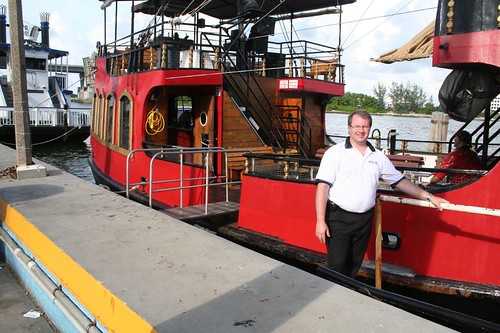
Shortly after leaving the dock, the sky started to get cloudy. A couple of minutes later, we were in a pretty intense storm. It was so bad I started humming the Gilligans Island theme song and wondering how far I could swim. the captain finally pulled into a nearby dock and we waited a while for the worst to pass.
After that, we finally got the tour. There were a lot of very nice homes, owned by people like Sharon Stone, Gloria Estevan, Sylvestor Stalone, Shaquille O'Neal, and Jackie Chan. For only 5 million, I could live there too...
After this, we went back to the hotel. The next day both of us had presentations to give, and neither of had completely finished ours. I always do mine at the last minute, since I try to customize it to the attendees at the conference.
The next morning, I had 2 major technical issues right in a row. First, I discovered that, in my second packing blunder of the trip, I had left both my USB drive and blank CD's at home, making it very difficult to get my (now finished) presentation onto the presentation computer!
Fortunately, although it's not obvious, the hotel is very close to a Walgreens and I was able to run (literally) over there and buy a new USB drive. Shaking from the heat and sudden exercise (yes, I'm out of shape - I'm working on it...), I walked into the bathroom to freshen up.
Then my cell phone rang. While grabbing at it, it slipped out of my (still shaking) hands and directly into the toilet! My scream of despair was still echoing in the room while I fished it out of the (fortunately unused) toilet bowl and over to a nearby hairdryer.
You have to realize that this is no ordinary phone. It's also my main business number, my mp3 player, backup camera, e-book reader and *gasp* day-timer. I had just managed to finally retire my old, heavy leatherbound paper-based day-timer only a few weeks before. Literally, it's my (business) life. Not a good development. BTW, water damage isn't covered by the warranty (imagine that!).
Anyway, distractions aside, I still needed to do my presentations which were immediately before and after lunch. Fortunately, they went well. You can see them (along with other presentations I've done) at private.mcanerin.com.
After this, I was exhausted and pretty much just went to sleep, since I had to be up at 4AM the next morning to catch my flight.
All in all, it was a very good trip, and I no longer hate Miami... As a matter of fact, I think I'll be back next year. Good job, Nacho!
Ian



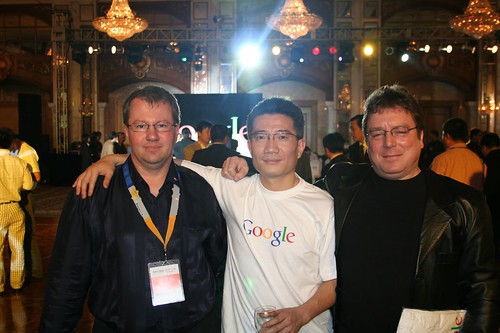

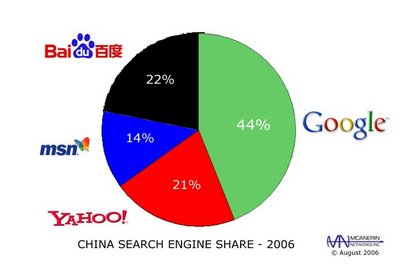 Ian
Ian
